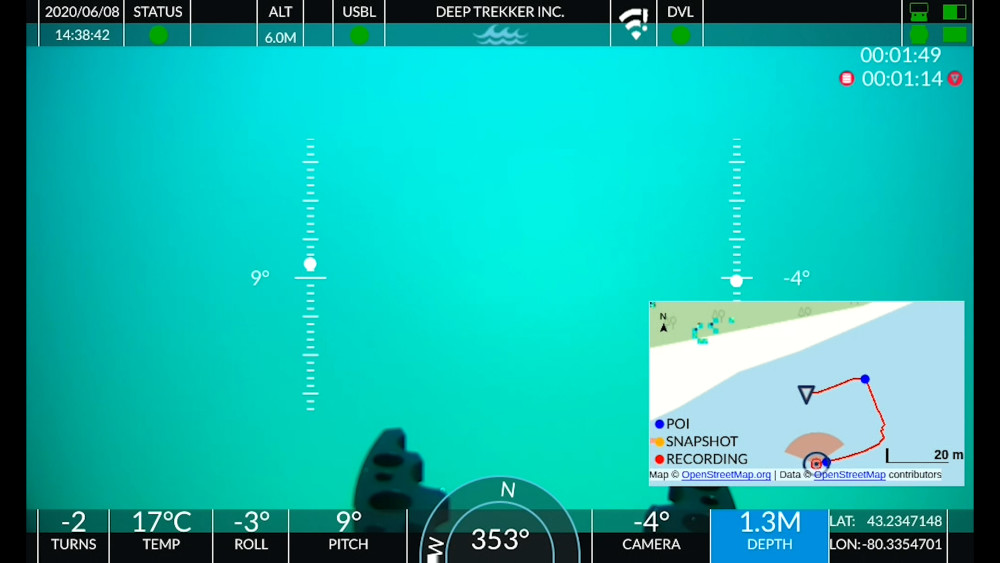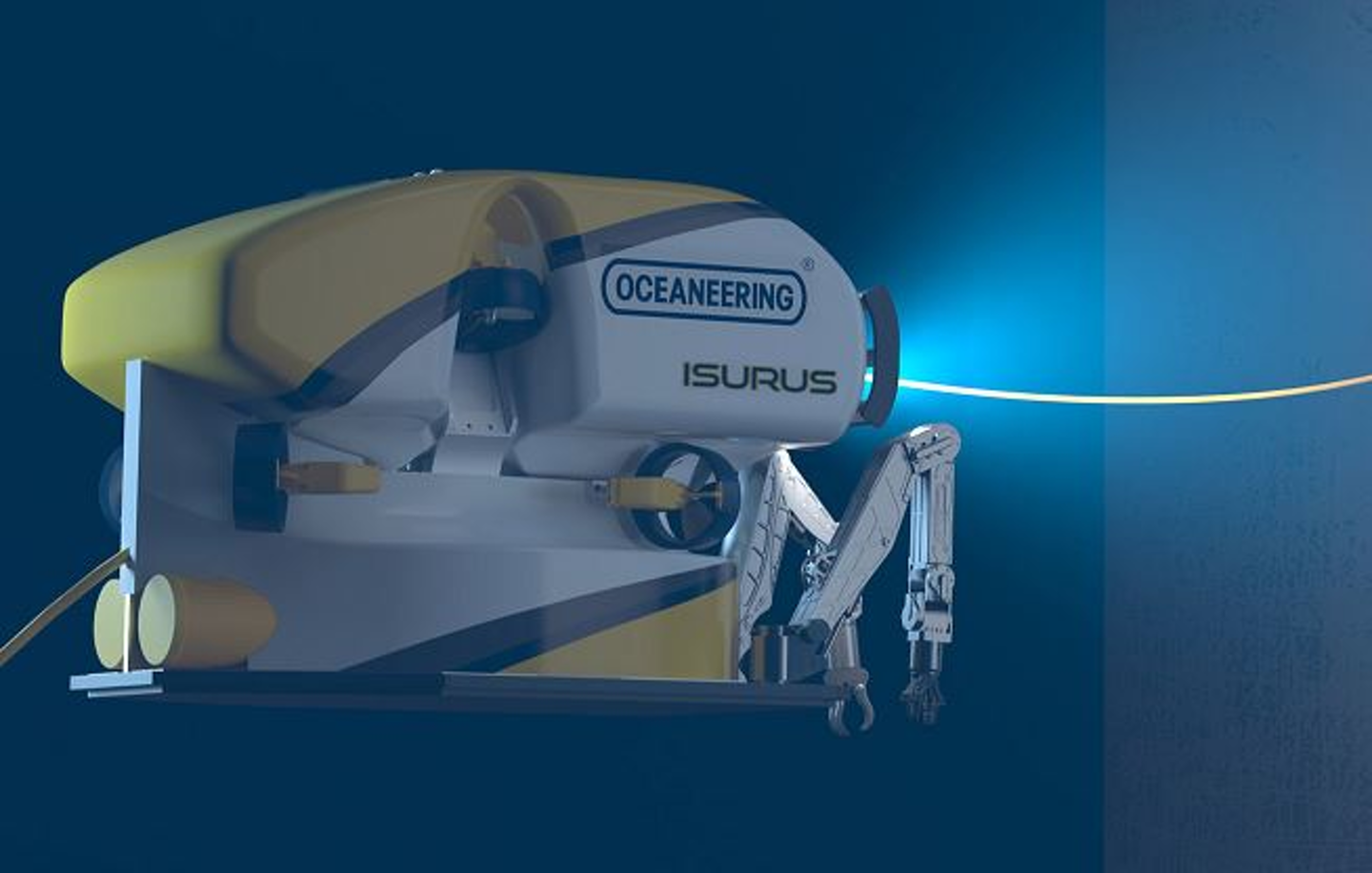Home › Forums › ROV › ROV Rookie Corner › Who works as ROV technician?
- This topic has 24 replies, 11 voices, and was last updated 13 years, 1 month ago by
Joe Nemeth.
-
AuthorPosts
-
November 2, 2011 at 8:49 pm #4651
Paul
Participant1st post so hello everybody and hope your all doing just fine.
Im looking at different aveues into the offshore industry. I worked for 10 years as an electronics technician for a company called SKF. Changed careers and retrained as a gas engineer but dont enjoy it. Got an NC, HNC & HND in electronics.
Done my sea survival last week and doing my MIST next week. Will do the medical in the next few weeks.
Looking along the lines of what i done before but the ROV technician does seem interesting i must say. Really dont fancy shelling out £££ on an ROV course with no promise of a job at the end.
How many guys here are ROV tech’s or ROV tech & pilot?
November 3, 2011 at 9:25 am #31657RW
ParticipantHello. This part of the forum has been pretty quiet recently so don’t feel bad if posts take time to come.
As its the rookie corner of the forum it is mainly filled with people interested in ROV work – like me and you.
I think once people do get their first job offshore doing it for real they end up too busy to spend time discussing it here 🙂
Did you enjoy your safety course?
It sounds like you have relevant experience. Just up to the individual companies now to choose you to work for them as a trainee 🙂 Good luck on ya search.
November 3, 2011 at 10:37 am #31658Phil
ParticipantYur, as above. Base tech – Been so busy I never post
November 3, 2011 at 3:41 pm #31659Ray Shields
ParticipantPaul,
the vast majority are Pilot Technicians – it’s not like the RAF where the Pilots fly it and the Groundcrew fix it – you fly it you fix it. I believe Oceaneering do/did have people who were purely Pilots but that is very uncommon.
Which Offshore survival did you do and which medical are you doing? There are different ones, and if you are doing them from scratch you should ensure that they also cover you for work in Norway to keep your options open.
The number one thing you must have to become a Pilot Tech is a TECHNICAL background – qualifications and experience. We still get people appearing on here thinking just doing a course will get them a job. You appear to have a good technical background already which is a start.
If you did want to do a course I would recommend having a look at NVQ/SVQs in Hydraulics as this would complement your electrical background already. Although most people get classed as "wigglys" and "clankys" offshore, you will be expected as you progress to be able to maintain all equipment, electrical and hydraulic.
November 3, 2011 at 5:09 pm #31656rov_er
ParticipantIf you did want to do a course I would recommend having a look at NVQ/SVQs in Hydraulics as this would complement your electrical background already. Although most people get classed as "wigglys" and "clankys" offshore, you will be expected as you progress to be able to maintain all equipment, electrical and hydraulic.
Ray, what about Hydraulics courses at NFPC (and in particular Stage 1 Hydraulics)? Would you recommend them too?
http://www.nfpc.co.uk/Training_Courses.htmlNovember 3, 2011 at 10:12 pm #31660RW
ParticipantJust under £1500 for the stage1 3 day course plus 2 day certification process.
You may think that’s a lot but could it be more worthwhile than a ROV course? What do you think?
November 7, 2011 at 7:47 am #31661Rinky
ParticipantThat seems like a lot of money, and I wonder whether these training companies are just run by former ROV engineers who worked out they could make more money out of milking wannabes.
I get so tired of all engineering professions going on about how much of a shortage there is of people, whilst simultaneously only ever advertising occasionally for very experienced people, and no whiff of pay rises.November 7, 2011 at 11:16 am #31662mctintin
ParticipantThe NFPC are the National Fluid Power Centre based in Nottingham, if I recall correctly. I believe they were started donkey’s years ago to train personnel for the mining and steel industries.
I have done a couple of Hydraulic courses they have held at the AECC in Aberdeen. It was run in conjunction with Sparrows Offshore. Company paid us to go them.
They were really good courses ran by experienced Hydraulics instructors. Bring along some circuit diagrams and they can explain what happens in it.
You also get a copy of the Rexroth Hydraulic training manual vol 1.
November 9, 2011 at 5:27 pm #31663Paul
ParticipantThanks for the replys guys.
I have done the 3 day BOSIET sea survival at Petrofac, Altens. I know doing the 5 day covers the Norway seas but im slim on holidays to use from work. Just done the MIST course at Petrofac. Need to do a medical now.
Once thats done a few fine tune of the CV is required then fire of some CV’s to see what response i get.
November 10, 2011 at 9:55 am #31664Chris
ParticipantI did 20 years Electronic Systems Engineer and have moved into ROV this year. Got a job as a Base Tech with Offshore trips as a "filler" at the moment. The Company I work for are trying to get at least 1 base tech on each spread when they’re out so that someone has some ownership. All of the others are contractors. It’s a way in, and steady work. Been in work for 4 months and had 1 month offshore and 3 months base. Heading away soon again hopefully.
I did an ROV course, and it did help on the interview. It showed that I was serious about moving into the industry and gave me a better background. I know what you mean about the former offshore guys now doing training though. Must be nicer work than just being away.
November 13, 2011 at 9:18 pm #31665Paul
ParticipantCarry out repairs on the ROV’s? do the tech’s fault find to component level on the PCB’s or just replace the PCB’s or mix of both?
These courses training guys up to be tech’s surely cant get guys upto the standard of fault finding to component level in that short space of time?
November 14, 2011 at 1:02 pm #31666Chris
ParticipantI guess that would depend on the capabilities of the techs around and the skills that you are bringing. The course didn’t teach me to that level, and only gave basic quals in electrics and hydraulics. They did insist on a good mechanical or electrical background before letting you take the course. Without at least one of them you would struggle to get work in the industry and would have been wasting your time and money; it would also have made the course provider look bad if you can’t find employment.
I have seen guys that haven’t done a course and are extremely good; I’ve also seen blokes that didn’t last and wouldn’t be employed again, who could have done with going on a few courses to learn something.
November 14, 2011 at 1:53 pm #31667Sit Rep
ParticipantCarry out repairs on the ROV’s? do the tech’s fault find to component level on the PCB’s or just replace the PCB’s or mix of both?
These courses training guys up to be tech’s surely cant get guys upto the standard of fault finding to component level in that short space of time?
Any decent Pilot/Technician will be able to fault-find to assembly level. Some, but not all by any means, will be able to fault-find to component level and it does depend on what the equipment is e.g. how many people do you know who can or would repair a PC motherboard to component level these days? Additionally mechanical (hydraulic) faults tend by their very nature to be more easily diagnosed (electrons tend to be harder to see than oil).
A technical grounding, and by that I mean any engineering trade, leads the individual to be able to diagnose faults of any nature because they have the required thought processes and logic if not the in-depth knowledge of a specific assembly.
Think of an ROV as a brand-new sports car e.g. Ferrari (the ROV may cost more), it’s faulty, would you take it to the manufacturer’s service centre or let your next door neighbour have a go at it because he has a socket set?
Cheers
November 14, 2011 at 2:27 pm #31668Ray Shields
ParticipantCarry out repairs on the ROV’s? do the tech’s fault find to component level on the PCB’s or just replace the PCB’s or mix of both?
These courses training guys up to be tech’s surely cant get guys upto the standard of fault finding to component level in that short space of time?
The point is that people MUST be of a technical background and experience to start with. These courses do not/should not teach people to be technicians, all they should need to do is teach technicians about ROVs.
November 14, 2011 at 2:41 pm #31669Chris
ParticipantWell said guys. Put it better than I did.
-
AuthorPosts
- You must be logged in to reply to this topic.



